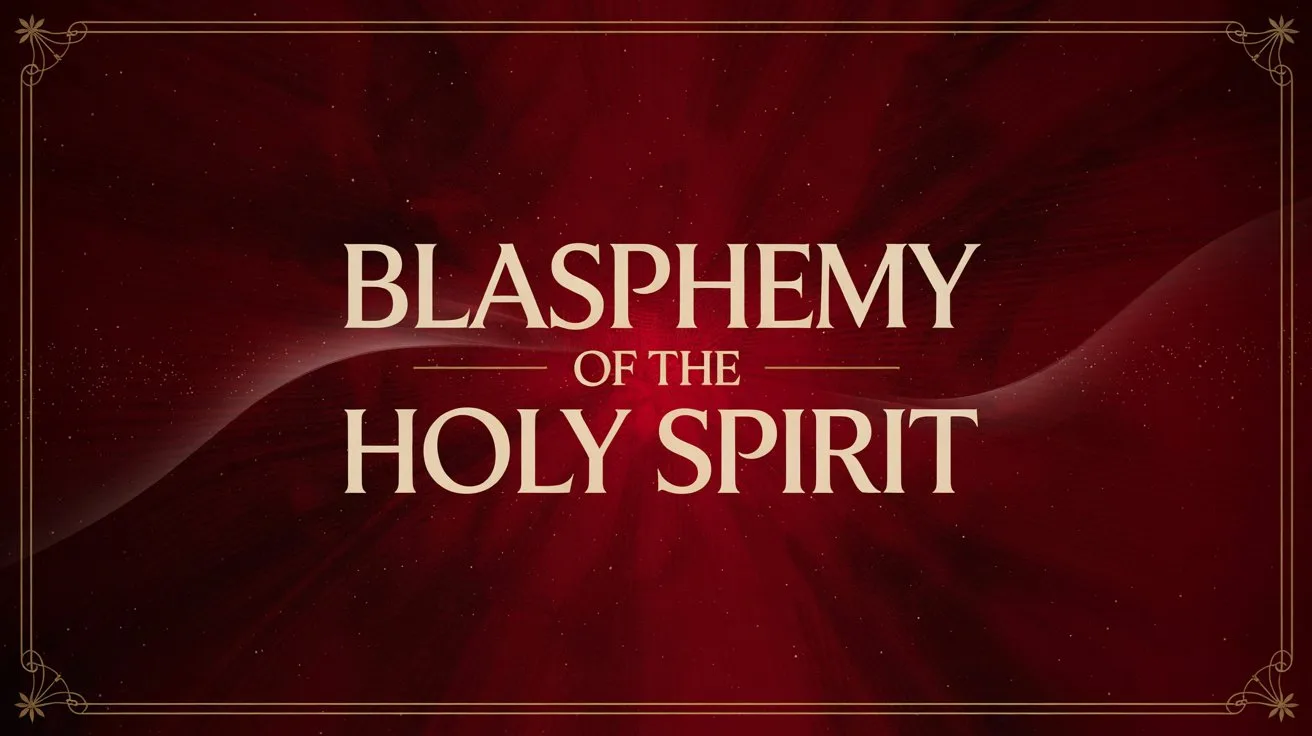The term “blasphemy of the Holy Spirit” comes directly from the words of Jesus.
In Matthew 12:31-32, He says,
“Therefore I say to you, every sin and blasphemy will be forgiven men, but the blasphemy against the Spirit will not be forgiven men. Anyone who speaks a word against the Son of Man, it will be forgiven him; but whoever speaks against the Holy Spirit, it will not be forgiven him, either in this age or in the age to come.”
This same event is also recorded in Mark 3:28-30 and Luke 12:10.
This is the only sin in the entire Bible that is said to be unforgivable. To understand why, we have to look closely at the context.
Context of Matthew 12
In Matthew 12, Jesus had just cast out a demons/”>demon from a man who was blind and mute. The people were amazed and asked, “Could this be the Son of David?” (Matthew 12:23). The Pharisees, refusing to acknowledge the work of God, said instead,
“This fellow does not cast out demons except by Beelzebub, the ruler of the demons” (Matthew 12:24).
They attributed the work of the Holy Spirit, done through Jesus, to Satan.
Jesus responds sharply. He explains that a kingdom divided against itself cannot stand and makes it clear that if He casts out demons by the Spirit of God, then the kingdom of God has come upon them (Matthew 12:25-28). He then issues the warning about blasphemy against the Holy Spirit.
What Exactly Was the Blasphemy?
Blasphemy in general means to speak irreverently about God. But this particular blasphemy (blasphemy against the Holy Spirit) is unique. In this context, it was attributing the undeniable work of the Holy Spirit to the devil. It wasn’t just doubt or ignorance; it was willful, hardened unbelief in the face of undeniable truth. They were not confused; they were rejecting light while standing in it.
The Holy Spirit is the one who convicts of sin, righteousness, and judgment (John 16:8). Rejecting Him and His work is to cut off the very means by which one can be drawn to repentance.
This is why Jesus says it is unforgivable: not because God’s mercy has limits, but because this kind of heart is so hardened it will not seek forgiveness.
Cross References and Additional Insights
Paul says in 1 Timothy 1:13 that he was formerly
“a blasphemer, a persecutor, and an insolent man; but I obtained mercy because I did it ignorantly in unbelief.”
His case proves that not all blasphemy is unforgivable—only the kind that comes with full knowledge and deliberate rejection.
Hebrews 6:4-6 also echoes this principle, speaking of those who were “once enlightened… and have become partakers of the Holy Spirit” and then “fall away,” saying it is impossible to renew them again to repentance.
Hebrews 10:29 asks,
“Of how much worse punishment, do you suppose, will he be thought worthy who has trampled the Son of God underfoot, counted the blood of the covenant… a common thing, and insulted the Spirit of grace?”
This is another view of the same hard-hearted rebellion against the Spirit’s work.
Titus 1:15-16 reminds us,
“To the pure all things are pure, but to those who are defiled and unbelieving nothing is pure; but even their mind and conscience are defiled. They profess to know God, but in works they deny Him.”
It’s not about a single statement or action; it’s about a heart posture.
What About Speaking Against God?
If someone has said something against God, do they need to worry?
No, not if they repent. Peter denied Jesus three times, but he was restored. Paul persecuted the Church. The thief on the cross railed against Christ initially (Mark 15:32), but later repented and was told,
“Assuredly, I say to you, today you will be with Me in Paradise” (Luke 23:43).
Blasphemy against the Holy Spirit is not a passing word or even a moment of rebellion. It’s the long-standing, willful rejection of the Spirit’s witness to the truth. That is what reveals a heart that will not come to repentance. If someone is worried that they’ve committed this sin, that very concern is usually evidence that they have not. The one who has committed this sin is not worried; they are hardened.
My Final Thoughts
The blasphemy of the Holy Spirit isn’t about a single statement or slip of the tongue. It’s not about getting angry with God or asking hard questions. It’s about a heart that sees the work of the Spirit clearly and still says “No.” It is deliberate, conscious, and final rejection of God’s truth.
So if you’re asking, if you’re worried, then take heart: you haven’t committed it. You still hear His voice. Today, if you will hear His voice, do not harden your heart (Hebrews 3:15). He still calls. He still saves. His mercy endures forever.





 Get the book that teaches you how to evangelize and disarm doctrines from every single major cult group today.
Get the book that teaches you how to evangelize and disarm doctrines from every single major cult group today.